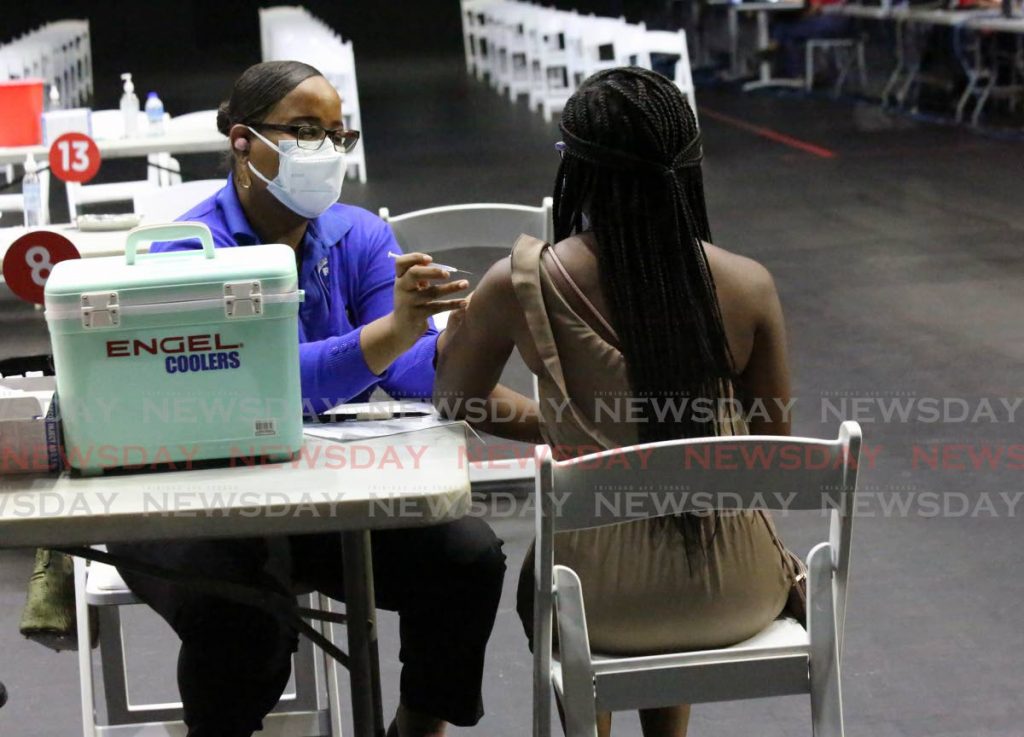Worrisome decline in vaccinations

By Friday last week, the gates had been thrown open wide for anyone who wanted to be vaccinated. Appointments were abolished in favour of walk-ins at the mass vaccination sites established to distribute the Sinopharm vaccine.
The response wasn't encouraging. At NAPA, 100 volunteers stood ready to guide and jab expected crowds, but rows of empty chairs stood testimony to the flagging response of the public.
By midday, the Paddock site at the nearby Queen's Park Savannah was a ghost town.
This was in the same week that saw the first case of the Brazil variant identified in Tobago and after the border reopening brought an influx of citizens into the country.
It's worth pausing here to note that the required tests and vaccinations for incoming passengers are a shield against importing covid19 cases, but they are not infallible.
The raging spread of the delta variant is now being referred to by the government's covid19 response team as inevitable, and the only real defence for the public is widespread vaccination.
Slowly, businesses are beginning to acknowledge the public health responsibilities that they face if they want to continue operating safely. Nigel R Khan bookstores and Peter George, who runs the Trotters Group, have joined Mario’s Pizzeria in redefining terms of work for staff who are not vaccinated.
That’s prompted trade unions, who have steadfastly refused to take a position on vaccination for workers, to call for meetings with local chambers of commerce.
But the country is fast approaching a time when talk will be moot.
The careful, tentative presence of the public at newly opened food establishments suggests an awareness of the country in the eye of the covid19 storm as the threat of variant infection looms.
Without more vaccination and greater attention to established hygiene protocols, the country faces significant challenges when variants of concern begin to spread.
Establishing control when more infectious covid19 variants begin to circulate will demand an increasingly hard line without higher vaccination rates.
There will be more stories like the unfortunate case of Alan Predy, who came to TT for his mother's interment, but who had a mix of vaccinations that were not approved locally. As a non-national, he was denied entry.
The government must become more proactive and persuasive in its efforts to address anti-vaccination misinformation.
A recent report by the Center for Countering Digital Hate suggests that 65 per cent of vaccine misinformation is generated by just 12 people. The so-called Disinformation Dozen thrive in an environment in which social-media algorithms cannot control the spread of false information.
The only possible response is an equally vigorous, appealing and effective local campaign to promote verifiable facts. Tedious and technical pronouncements at press-conference podiums aren’t enough.


Comments
"Worrisome decline in vaccinations"